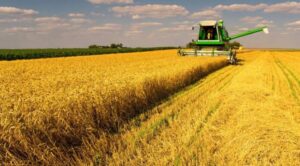
Let’s track the prices as of the end of June 2025 for the main grain and oil crops exported from Ukraine, as well as fluctuations in their value on the world market.
The price of wheat (France, FOB) was 235 USD/t, according to market operators on June 25, 2025. This is 1 USD less than last week, 6 USD more than the previous month, and 3 USD more than the previous year. The price of wheat (Ukraine, 2nd grade, CPT) for the central regions (June 26) was 192 USD/t. This figure remained unchanged during the week, decreased by 15 USD over the month, and increased by 45 USD over the year. For ports, the amount was 206 USD/t, which is 3 USD less than a week ago and 18 USD less than a month ago, but 19 USD more than a year ago.
According to the International Grains Council, the price of corn (USA, FOB) as of June 25 was 192 USD/t. This is USD 8 less per week and USD 16 less per month, but USD 3 more per year. The price of corn (Ukraine, CPT) on June 26 for the central regions was USD 204/t. It did not change during the week, but decreased by USD 4 per month and increased by USD 73 per year. For ports, it was 216 USD/t (also unchanged from the previous week, down 16 USD from the previous month, and up 3 USD from 2024).
“Let’s pay attention to the forecast for global corn production in 2025/26 MY. It has been reduced by 1 million tons to 1,276 million tons, compared to 1,225 million tons in the current season. However, the forecast for global consumption has been increased by 1 million tons to 1,269 million tons. Therefore, the estimate of final corn stocks has been lowered by 2 million tons (to 282 million tons). This will exceed the current season’s figure by 7 million tons,” said grain market analyst Alexander Korenitsyn.
As for the price of barley (France, FOB) as of June 25, it stood at USD 216/t. This is USD 6 less than a week ago and USD 5 less than a month ago, but USD 11 more than a year ago. Let’s analyze the price changes for barley (Ukraine, CPT). As of June 26, the price was (central regions) – 171 USD/t. This is 3 USD more per week and 46 USD more per year, but 30 USD less per month. For ports, the price is 188 USD/t, which is 6 USD more per week, 40 USD more per year, but 2 USD less per month.
Prices for major grain and oil crops exported from Ukraine, end of June 2025
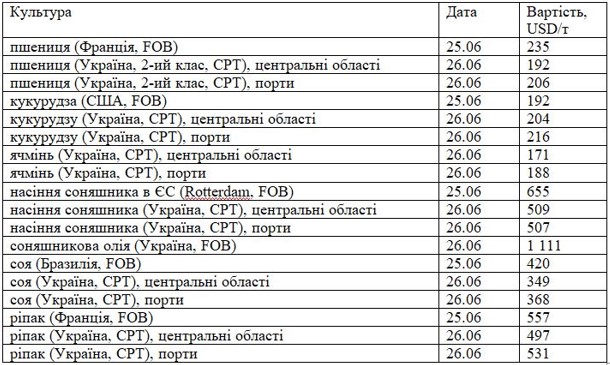
According to Oleksandr Serhiyovych Korenitsyn, the price of sunflower seeds in the EU (Rotterdam, FOB) as of June 25 was USD 655/t. The changes are as follows: +5 USD per week, -14 USD per month, and +170 USD per year. The price of sunflower seeds (Ukraine, CPT) on June 26 (central regions) was 509 USD/t. This is 8 USD less per week and 16 USD less per month, but 109 USD was added to the price per year. For ports, the cost is 507 USD/t. The price fell by 6 USD per week and rose by 9 USD per month and 148 USD per year. A ton of sunflower oil (Ukraine, FOB) costs 1,111 USD as of June 26.
The cost increased by $8 per week and by the same amount per month.
The calculation of price fluctuations for soybeans is based on its cost as of June 25 (Brazil, FOB) – $420/t. It decreased by $10 per week and by $16 per year, but increased by $15 per month.
“The price of soybeans (Ukraine, CPT) in the central regions was 349 USD/t on June 26, which is 8 USD less than a week ago, 4 USD less than a month ago, and 23 USD less than in 2024. The price for ports is 368 USD/t. It decreased by 14 USD, 13 USD, and 10 USD over the week, month, and year, respectively,” said analyst Alexander Korenitsyn.
The price of rapeseed (France, FOB) on June 25 was $557/t. Price changes: down $9 per week, up $7 per month, and up $55 per year. The cost of rapeseed (Ukraine, CPT) on June 26 for central regions is 497 USD/t (up 106 USD per year), for ports – 531 USD/t (up 110 USD per year).
agricultural sector, COST, DOLLAR, EXPORT, HARVEST, Oleksandr Korenitsyn, PORT, PRICE, SOYBEANS
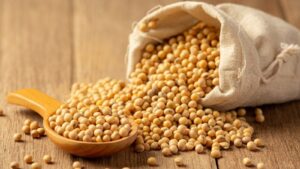
Soybean exports from Ukraine in the 2025-2026 marketing year (MY, July-June) may decrease by more than a third and amount to about 2.7 million tons due to the expected reduction in crop production, the possible impact of export duties, and the continued attractiveness of processing, according to the information and analytical agency APK-Inform.
Experts recalled that Ukraine exported 3.97 million tons of soybeans during September-July 2024-2025 MY, which is 28% more than in the same period last year and set a new record for the season.
“The significant increase in export rates was achieved primarily thanks to the record harvest of this crop in the country in 2024, as well as attractive prices and geographical proximity to key global importers,” analysts explained.
At the same time, in their opinion, the record pace of soybean shipments in the summer may be stimulated by the expected introduction of a 10% duty on soybeans from September 2025, if the Ukrainian president signs the relevant bill.
Among the top buyers of Ukrainian soybeans in the current season, experts named Turkey (968,600 tons, up 39% from the previous season), Egypt (673,000 tons, down 31%), and the Netherlands (546,000 tons, up 2.7 times).
“In total, in the 2024/25 season, soybean exports from Ukraine could reach about 4.1-4.2 million tons (+26%), which could be a new record for the industry,” APK-Inform concluded.
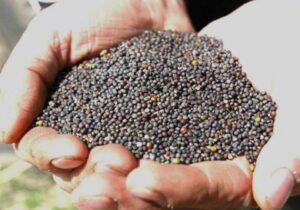
Agroholding Agrotrade has launched a support program for soybean and rapeseed producers in the 2025 season amid regulatory changes and the introduction of export duties, the agroholding’s press service reported.
According to the report, Agrotrade will help farmers enter foreign markets directly, without intermediaries, and maintain profitability. Agricultural producers are exempt from paying such duties if they sell for export. The program aims to help producers sell their crops more profitably by adapting to new market conditions.
“If a producer sells soybeans or rapeseed to a domestic intermediary for one hryvnia, the intermediary, in turn, exports the product and receives foreign currency. With the introduction of export duties, this model loses its economic efficiency for producers, as the intermediary will offer a lower price to compensate for the duty costs. Instead, the producer can now sell their products directly abroad and earn more,” explained Andriy But, director of the foreign economic activity department at Agrotrade.
The agricultural holding company has offered producers full support for export agreements, from the conclusion of export contracts to logistics and document processing, as well as step-by-step advice in the form of an action algorithm so that producers understand each stage.
The program will be available to all regions of Ukraine. The minimum batch size is 200 tons.
“The Agrotrade Group is actively developing its export business and improving logistics to create new opportunities for Ukrainian agricultural producers. We are paving the way for direct, transparent, and profitable cooperation — helping producers adapt to changes, maintain profitability, and gain knowledge and the ability to export independently and receive foreign currency earnings,” the agricultural holding concluded.
The Agrotrade Group is a vertically integrated holding company covering the entire agricultural cycle (production, processing, storage, and trade in agricultural products). It cultivates over 70,000 hectares of land in the Chernihiv, Sumy, Poltava, and Kharkiv regions. Its main crops are sunflower, corn, winter wheat, soybeans, and rapeseed. It has its own network of elevators with a total storage capacity of 570,000 tons.
The group also produces hybrid seeds of corn, sunflower, barley, and winter wheat. In 2014, a seed plant with a capacity of 20,000 tons of seeds per year was built on the basis of the Kolos seed farm (Kharkiv region). In 2018, Agrotrade launched its own brand, Agroseeds.
The founder of Agrotrade is Vsevolod Kozhemyako.
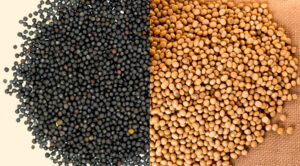
The Verkhovna Rada has supported a bill to introduce a 10% export duty on soybeans, kohlrabi and rapeseed (crushed and uncrushed) with an annual 1% reduction in the rate by 2030, to 5%, MP Serhiy Labaziuk (For the Future parliamentary faction) said in a telegram channel.
The MP added that at the same time a special fund will be created – the State Fund for Support of Agricultural Producers, which, given the existing export volumes (without adjustment for a 10% decrease in value/volumes) of oilseeds, will amount to almost $500 million.
“But with the increase in processing, changes in export prices, and a decrease in the volume of raw materials, revenues will fall. And it will be difficult not to give part of the revenues to the state budget. Therefore, if we manage to raise UAH 3-5 billion for the fund, it will be a victory,” Labaziuk said.
MP Oleksiy Honcharenko (European Solidarity faction) clarified in a Telegram that 245 MPs supported the draft law.
“This is just a shame. They sneaked in the draft law on industrial pollution – duties for farmers. They promised to serve the people, but they serve schemes,” he commented on the document.
As reported, the “soybean amendments” are changes to the Tax Code of Ukraine introduced at the end of 2017. They concerned the procedure for VAT (value-added tax) refunds for soybean and rapeseed exports.
For several years in a row, Stepan Kapshuk, CEO of the Ukroliyaprom association, proposed to ban the export of 50% of the rapeseed crop from the country to increase the utilization of Ukrainian processing capacities, which, in particular in 2024, were significantly short of raw materials.
Subsequently, Dmytro Kysylevskyi, deputy chairman of the parliamentary committee on economic development, prepared draft law No. 13134, which, with amendment No. 40, provided for the introduction of a 10% export duty on rapeseed and soybeans. He argued that Ukrainian soybean and rapeseed processing plants are underutilized by 35%, and if they are used, Ukraine will receive an additional UAH 7.3 billion in state budget revenues to finance the Armed Forces, and an additional $238 million will allow for the construction of dozens of plants and the creation of thousands of new jobs.
A number of associations criticized the idea of the draft law “On Amendments to the Tax Code of Ukraine on Expanding Patient Access to Medicines Subject to Procurement by a Person Authorized to Make Procurement in the Healthcare Sector by Concluding Managed Access Agreements”, which provided for the imposition of duties on the export of soybeans and rapeseed from Ukraine. According to the business associations, they are discriminatory towards small and medium-sized producers, aim to increase the profits of processors at the expense of small and medium-sized farmers and violate the EU-Ukraine Association Agreement.
On June 18, the Verkhovna Rada did not support this initiative.
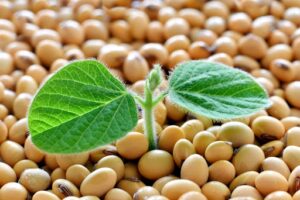
“Global soybean supply and demand forecasts for 2025/26 call for increased supply, increased processing, reduced exports, and increased ending stocks. (…) The biggest surprise came from Ukraine, where production was sharply increased by 1 million tons to 7.6 million tons. This is not only higher than the previous forecast, but also exceeds last season’s record (7 million tons).Global soybean production has been increased due to an increase in the production forecast for Ukraine based on government data on the progress of sowing,” the report notes.
The forecast for global soybean production in 2025/26 MY has been increased by 0.86 million tons to 427.7 million tons, exports have been reduced by 0.8 million tons to 187.6 million tons, and final global soybean stocks have been increased by 0.77 million tons to 126.07 million tons.
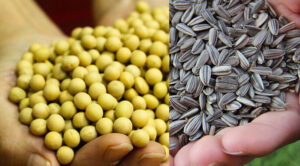
Prime Minister Denys Shmyhal says that 5.6 million hectares of spring cereals and legumes and 7.7 million hectares of industrial crops have been sown in Ukraine.
“Farmers are completing the fourth spring sowing during a full-scale war. 5.6 million hectares of spring grains and legumes have been sown. We have reached last year’s level. The highest sowing rates are in the Poltava, Chernihiv, Vinnytsia, Cherkasy, and Sumy regions,” Shmyhal wrote on Telegram.
According to him, a distinctive feature of this season is an increase in the area under spring wheat, which currently stands at almost 220,000 hectares, due to demand from processing companies and exporters.
“In addition, 7.7 million hectares have been sown with industrial crops, mainly sunflowers (4.9 million hectares) and soybeans (2.3 million hectares),” the prime minister said.
Shmyhal stressed that the total area sown is sufficient to meet domestic food needs and develop export potential.